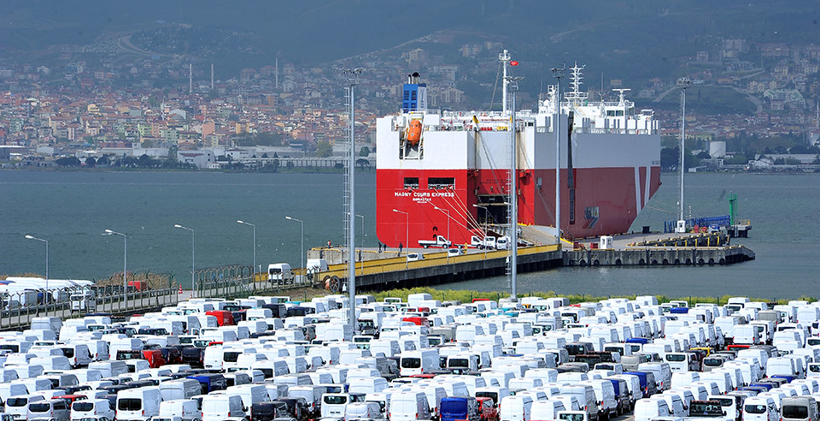According to foreign media reports, the EU is Turkey’s main overseas car market. As the EU tightens restrictions on gasoline-powered vehicles, the Turkish auto industry is stepping up its efforts to keep up with the global transition to electric vehicles.
Ford Motor's joint venture in Turkey plans to invest 2 billion euros (2.3 billion US dollars) to start production of electric commercial vehicles in 2023. This will be one of the largest investments in the Turkish automotive industry.
Turkish car companies also hope to launch the first batch of domestically-made electric vehicles in 2022 under government-supported projects. Turkey is following Europe's carbon-free plan, hoping to become an electric vehicle production center and thereby enhance its industrial competitiveness.

(Image source: Ford Otosan)
Ford Otosan is a joint venture between Ford and Koc Holding of Turkey. The general manager of the company Haydar Yenigun said that Turkey’s demand for electric vehicles is growing every year.
Yenigun stated that the company hopes to achieve carbon neutrality in passenger car production by 2026 by selling electric and hybrid vehicles in the European Union. He said that by 2030, all passenger cars produced by Ford Otosan will be electric vehicles.
In the first half of 2023, Ford Otosan plans to start producing pure electric and hybrid versions of Transit vans for the European market. The company also hopes to build an electric car production line and produce batteries. Although the details of the production plan were not disclosed, the company's annual production is expected to increase from 440,000 to 650,000.
Ford Otosan accounts for a quarter of Turkish car exports. Turkish President Recep Tayyip Erdogan stated that Ford’s 2 billion euro investment will increase the company’s annual exports from 5.9 billion U.S. dollars to 13 billion U.S. dollars.
Turkey and the European Union have signed a customs union trade agreement. Because Turkish consumers prefer imported cars, 70% to 80% of the 1.5 million cars produced in the country each year are exported overseas, mainly in Europe.
In the European market, the total sales of electric vehicles and plug-in hybrid vehicles reached 1.33 million in 2020, an increase of 140% over 2019. These new energy vehicles accounted for more than 10% of new car sales in the region.
In July, the European Bank for Reconstruction and Development decided to provide Ford Otosan with a loan of 650 million euros to support the company's electric vehicle production plan. Yenigun expects that in the long run, Turkey will become a major electric vehicle production and sales center.

(Image source: TOGG)
The Turkish government also has its own electric vehicle development and manufacturing projects. Turkey's first local automaker TOGG (composed of Turkish industrial giants) announced that it plans to invest 22 billion Turkish Lira (approximately US$2.4 billion) within 13 years and produce five electric vehicles totaling 175,000 electric vehicles each year.
TOGG CEO Gurcan Karakas said that the company will start producing and selling electric vehicles in the second half of 2022, and will start exporting to Europe in 2024. The first batch of electric vehicles will be exported to Germany.
TOGG will also cooperate with Chinese battery manufacturer Funeng Technology to produce lithium-ion batteries.
However, the sales of TOGG's electric vehicles at home and abroad are still facing obstacles. In foreign countries, its brand recognition is very low. In addition, due to Turkey's lack of electric vehicle infrastructure, including no charging facility network, it will also have an impact on its sales. In 2020, Turkey sold only 800 electric vehicles. In February 2021, the Turkish government will increase the consumption tax on electric vehicles from the current 3% to 15% to 10% to 60%. Experts pointed out that this move may hinder the popularization and adoption of electric vehicles in Turkey.
This article is reproduced from Gasgoo.com
Notice on Holding the Rui'an Promotion Conference for the 2025 China (Rui'an) International Automobile and Motorcycle Parts Exhibition
On September 5th, we invite you to join us at the Wenzhou Auto Parts Exhibition on a journey to trace the origin of the Auto Parts City, as per the invitation from the purchaser!
Hot Booking | AAPEX 2024- Professional Exhibition Channel for Entering the North American Auto Parts Market
The wind is just right, Qianchuan Hui! Looking forward to working with you at the 2024 Wenzhou Auto Parts Exhibition and composing a new chapter!
Live up to Shaohua | Wenzhou Auto Parts Exhibition, these wonderful moments are worth remembering!
Bridgestone exits Russia and sells assets to S8 Capital
Free support line!
Email Support!
Working Days/Hours!





